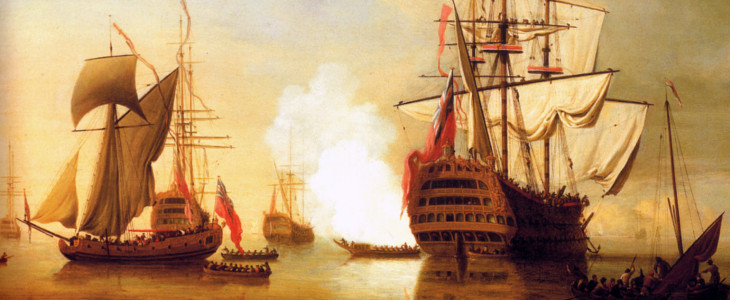1628 – Ship Money

The Plantagenet Kings of England had the medieval right to require Maritime towns and counties to furnish them with ships in times of war. This duty was sometimes commuted for money, which became known as ‘ship money’. Ship money was unique as it was one of the few taxes the Monarchy could levy without the approval of Parliament.
Ship money was an intermittent tax that was revived by Charles I in 1628 when he raised £173,000 by levying it on every county in England. In 1634 King Charles I issued a writ requiring the justices of London and other seaports to provide a certain number of ships of war of a prescribed tonnage and equipment or their equivalent in money. The tax was super unpopular as contrary to all precedents, it was issued in times of peace. Nevertheless, the sum of £104,000 was collected.
In 1635, and subsequent years, ship money was annually levied by Charles I to cover peacetime government expenditures. Dissent with the ship money grew to such an extent, that by 1639, less than 20% of the money demanded was raised. The tax was stopped by the Long Parliament when they voted in the Ship Money Act of 1640.
"You’d be stupid not to try to cut your tax bill and those that don’t are stupid in business"
- Bono: U2




